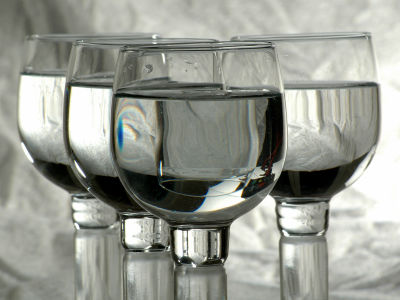4 reasons why every sip of alcohol increases your cancer risk

The Ministry of Health, Labor and Welfare's
Alcohol causes cancer, and less than 1 drink can increase your risk − a cancer biologist explains how
https://theconversation.com/alcohol-causes-cancer-and-less-than-1-drink-can-increase-your-risk-a-cancer-biologist-explains-how-245528
According to Professor Pranoti Mandrekar, a cancer biologist at the University of Massachusetts Chan Medical School, cancer develops when cells in the body grow uncontrollably. Alcohol ingested into the human body can cause DNA damage through a variety of mechanisms, which can lead to mutations that interfere with normal cell division and growth, ultimately increasing the risk of tumor formation.
Based on these findings, the U.S. Department of Health and Human Services pointed out in its 2025 report, ' Alcohol and Cancer Risk,' that there are four factors that contribute to alcohol-related cancer: 'alcohol metabolism,' 'oxidative stress and inflammation,' 'changes in hormone levels,' and 'interactions with other carcinogens.'

◆1: Alcohol metabolism
When alcohol consumed begins to break down, the first by-product produced is
In particular, many people of East Asian descent, including Japanese people, have genetic mutations that lead to the flushing reaction in which the face turns red when exposed to alcohol, and a reduced ability to metabolize acetaldehyde, which significantly increases the risk of alcohol-related cancers.

◆2: Oxidative stress and inflammation
The acetaldehyde produced during the metabolism of alcohol is not only harmful in itself, but also releases harmful molecules called
A study published by Mandrekar et al. in 2020 confirmed that free radicals produced by alcohol consumption alter the synthesis and breakdown of proteins in cells, producing proteins that cause inflammation, which may promote the formation of tumors.
3. Changes in hormone levels
Alcohol also directly affects hormone levels and can lead to cancer: Specifically, alcohol can cause a deficiency of vitamin A, which regulates the female hormone estrogen, and elevated estrogen levels ultimately lead to an increased risk of breast cancer.

◆4: Interaction with other carcinogens
According to Mandrekar, drinking alcohol increases the absorption of carcinogens from cigarettes and e-cigarettes, and smoking itself also causes inflammation and free radicals that lead to DNA damage, which means that people who drink alcohol and smoke are at higher risk of developing oral, pharyngeal and laryngeal cancer.
◆How much alcohol is safe to consume?
When it comes to the question of how much alcohol you can safely consume and enjoy while avoiding any health hazards, unfortunately the experts have a resounding answer: 'zero.'
'Alcohol consumption contributes to preventable cancers,' Mandrekar concluded. 'To date, there is no way to pinpoint the exact effect of alcohol on an individual's cancer risk, and the impact of alcohol on tumor formation may depend on a person's genes, lifestyle, diet, and other health factors. However, we do know that by reviewing our drinking habits, we can protect our health and reduce our risk of cancer.'
Related Posts:







